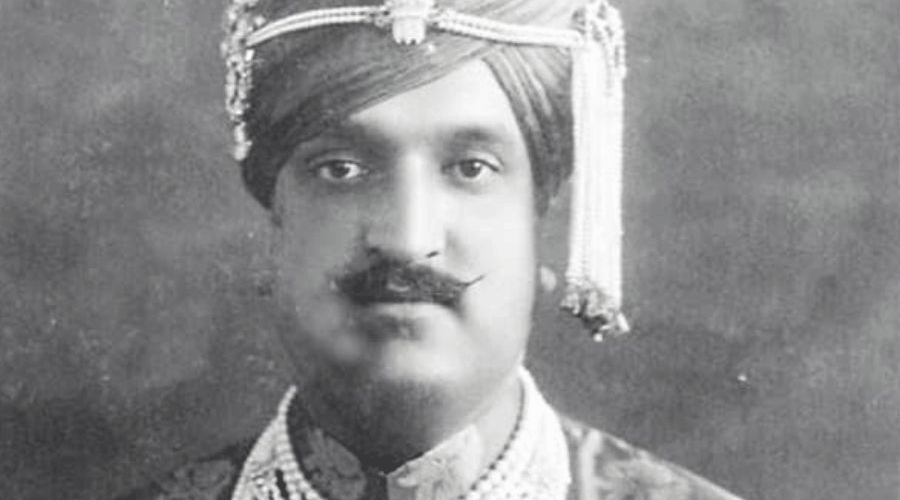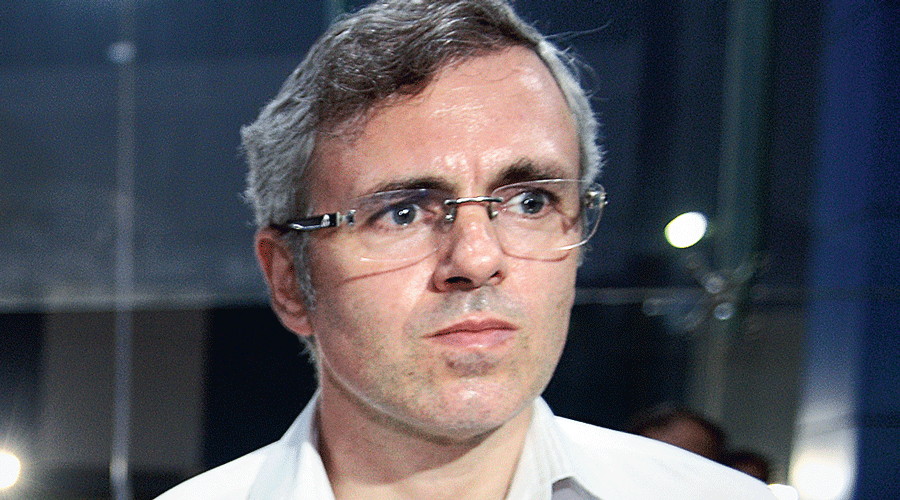The Jammu and Kashmir administration’s announcement of an official holiday on the birth anniversary of Maharaja Hari Singh, the last Dogra ruler, has rubbed salt into the wounds of Kashmiris but sparked celebrations in Jammu’s Dogra heartland.
Mohammad Yousuf Tarigami, CPM veteran and spokesperson for the alliance fighting for the restoration of Article 370, said the decision to have a holiday on September 23 amounted to celebrating an autocrat and demeaning the freedom-loving people who fought against his rule.
Jammu’s Dogras hailed the decision cutting across the political spectrum, with hundreds hitting the streets to celebrate.
Jubilant BJP politicians visited the Bawe Wali Mata temple, with party leader Ravinder Raina and his colleagues seen dancing and hugging one another.
Lieutenant governor Manoj Sinha had announced the decision on Thursday night after meeting a delegation of members of the Yuva Rajput Sabha, civil society, and others, including the head of the Jammu and Kashmir transport union.
“Maharaja Hari Singh was a great educationist, progressive thinker, social reformer and a towering man of ideas and ideals,” Sinha said in a statement. “The public holiday will be a fitting tribute to Maharaja Hari Singhji’s rich legacy.”
Dismay prevailed in Kashmir and parts of Jammu where the erstwhile Dogra rulers were seen as oppressive, with the announcement reinforcing the perception in the Valley that the government has a pro-Hindu bias.
Senior politicians, including former chief ministers Mehbooba Mufti and Omar Abdullah, however, maintained a stoic silence.
A National Conference leader said that senior leaders might react once an official notification was issued.
“This move is aimed at further polarising the population, and placating those Dogras who are angry with the government. We are obviously not happy, but nor do we want people here fighting each other,” a politician said.
A former Kashmir University academic said the Maharaja and his arch-rival, Sheikh Abdullah, represented two contrasting visions.
“The old feudal order, the Dogra state, was backed by the British while the vision of Sheikh Abdullah was supported by the Indian leadership of that time. What is happening now is, in a way, a reversal of what was achieved in 1947,” he said.
Tarigami told The Telegraph: “Sheikh Mohammad Abdullah fought against his (Maharaja’s) rule but the government cancelled the holiday on his (Abdullah’s) birth anniversary and that on the anniversary of July 13, 1931.”
Jammu and Kashmir had for decades had official holidays on Abdullah’s birth anniversary, December 5, and July 13, observed as Martyrs’ Day in memory of people who died in firing by the forces of Hari Singh’s government in 1931. Both holidays were scrapped last year.
“Sheikh sahib introduced revolutionary reforms that benefited a large population even in Jammu, including landless OBCs and Dalits, while he (the Maharaja) protected the interests of the landed,” Tarigami said.
“If there has to be a holiday, it should have been on the birth anniversary of a real Jammu hero like Dhanwantri who fought against (the British) and Dogra rule and spent years in jail.”
Dhanwantri was a freedom fighter and one of the founders of the Communist Party of India unit in Jammu and Kashmir.
Muslims in Jammu and Kashmir accuse Hari Singh and his family of complicity in the massacre of thousands of Muslims in Jammu during Partition, which changed the Muslim-majority character of Jammu province.
But Jammu’s Dogras, who are Hindus, had been demanding a holiday on Hari Singh’s birth anniversary.
In 1947, the Maharaja, who initially favoured an independent Kashmir, signed the instrument of accession with India, reportedly under duress following a raid by tribal attackers from Pakistan.
Abdullah had supported the accession.
“The irony is that the Maharaja was (initially) against accession with India and yielded only after the tribal raids started in October (1947),” Tarigami said.
He said the single biggest achievement of the Dogra rulers was the unification of Jammu, Kashmir and Ladakh.
“The state they created has been destroyed by the BJP-led government. Jammu is battling rising unemployment but the fresh move is a diversion, a bid to polarise the population,” Tarigami said.











